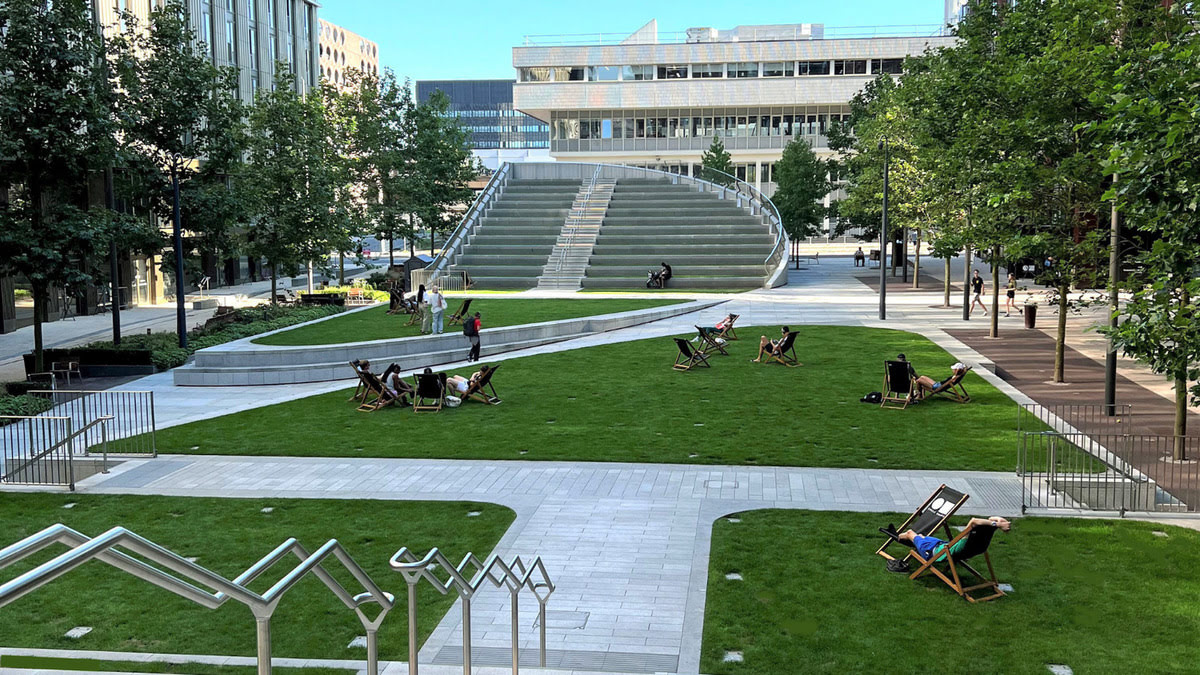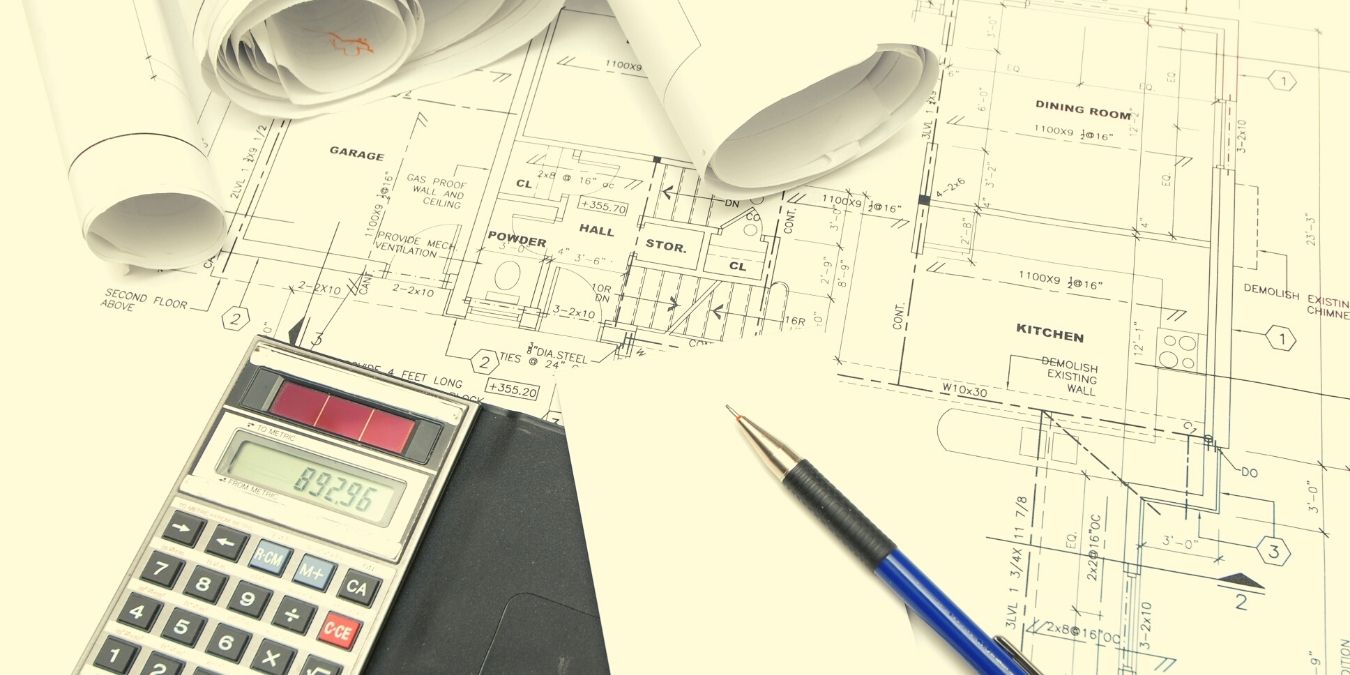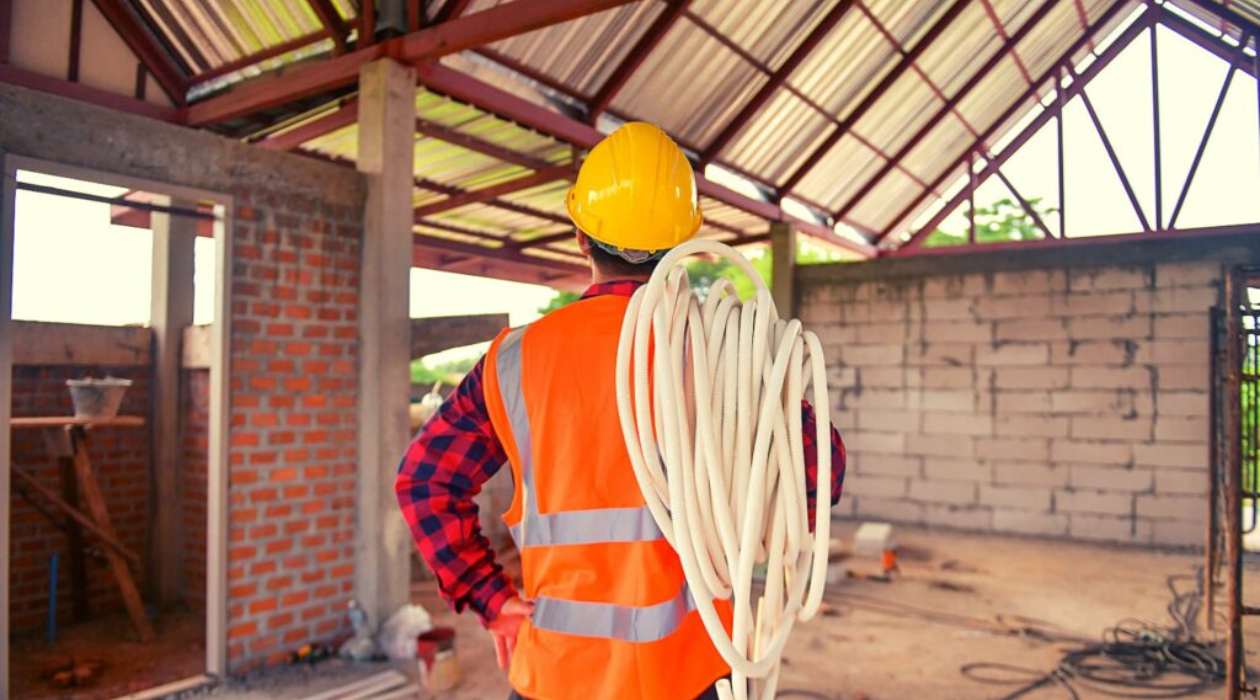Home>diy>Building & Construction>What Are Soft Costs For Construction


Building & Construction
What Are Soft Costs For Construction
Modified: January 9, 2024
Learn about soft costs in building construction and how they can impact your project budget. Discover what expenses fall under soft costs and how to manage them effectively.
(Many of the links in this article redirect to a specific reviewed product. Your purchase of these products through affiliate links helps to generate commission for Storables.com, at no extra cost. Learn more)
Introduction
Welcome to the fascinating world of construction! At first glance, it may seem like construction projects solely revolve around the physical construction and materials involved. However, there is a hidden layer of costs in every construction project that is equally as important, yet often overlooked – soft costs.
Soft costs, also known as indirect costs, are the expenses incurred during the planning, design, and management phases of a construction project. Unlike hard costs, which include direct materials and labor, soft costs are the intangible expenses that are vital to the success and smooth execution of any construction endeavor.
In this article, we will explore the definition, importance, and examples of soft costs in construction. We will also delve into common soft costs and provide insights on how to minimize them, ultimately helping you better understand this often underrated aspect of construction projects.
So, let’s dive in and discover the compelling world of soft costs in construction!
Key Takeaways:
- Soft costs are essential, intangible expenses in construction, crucial for project success. They include planning, legal, insurance, and marketing expenses, often overlooked but vital for smooth project execution.
- Minimizing soft costs through early planning, communication, competitive bidding, and technology adoption is key. Effective risk management and energy-efficient designs also contribute to reducing soft costs and improving project outcomes.
Read more: What Are Soft Costs In Construction
Definition of Soft Costs
Soft costs are a critical component of construction projects, encompassing the expenses incurred during the pre-construction, design, and administrative phases. Unlike hard costs, which are directly related to the physical construction process, soft costs are indirect expenses that contribute to the overall success and functionality of a project.
Soft costs can be categorized into various areas, including planning and design fees, permits and legal expenses, consultant fees, project management, insurance, financing costs, marketing expenses, and more. These costs are essential for the smooth operation and timely completion of construction projects.
Here are some key characteristics that define soft costs:
- Non-Tangible Expenses: Soft costs are intangible expenses that cannot be directly associated with physical construction elements. Instead, they involve services, permits, and administrative tasks necessary for project advancement.
- Indirect Costs: Soft costs are incurred indirectly during the different project stages, making them necessary for successful project execution but not directly impacting the physical aspects of construction.
- Pre-Construction and Post-Construction Expenses: Soft costs are incurred at various stages of a construction project, including planning, designing, financing, marketing, and legal procedures.
Understanding and budgeting for soft costs is crucial to prevent any unforeseen financial setbacks and to accurately estimate the overall project cost. By including soft costs in the initial budget planning, constructors can ensure a successful and well-managed project from start to finish.
Importance of Soft Costs in Construction
Soft costs play a vital role in the overall success of construction projects. While hard costs are more visibly associated with the physical aspects of construction, soft costs are equally important and should not be underestimated or overlooked. Here are some key reasons why soft costs are crucial in construction:
- Project Planning and Design: Soft costs encompass expenses related to project planning, design, and architectural services. These costs are essential for creating a well-thought-out and efficient construction plan, ensuring that the project meets all necessary regulations, codes, and client expectations.
- Permits and Legal Procedures: Soft costs include costs incurred for obtaining necessary permits, licenses, and approvals from local authorities. Compliance with legal requirements is vital to avoid delays, fines, and potential legal issues, which can significantly impact the project timeline and budget.
- Consultant and Professional Fees: Hiring professionals such as engineers, surveyors, and consultants is essential for ensuring the safety, functionality, and high-quality standards of the construction project. Soft costs cover the fees associated with their expertise, contributing to the overall success and efficiency of the project.
- Project Management: Soft costs also include expenses related to project management, including the salaries of project managers and administrative staff. Proper project management ensures effective coordination, communication, and timely execution of tasks, ultimately leading to the successful completion of the project.
- Insurance and Financing Costs: Soft costs encompass expenses for insurance coverage to protect against potential risks and liabilities. Additionally, financing costs, including interest payments on construction loans and related financial charges, are also considered soft costs. These costs are necessary for securing the financial stability and smooth operation of the project.
- Marketing and Promotion: Soft costs include expenses for marketing and promotion to attract potential clients and showcase completed projects. Effective marketing strategies can enhance the reputation and visibility of construction companies, leading to increased business opportunities.
Considering and properly managing soft costs is crucial for successful project completion. Failing to account for soft costs can result in unexpected financial burdens, delays, and compromised project quality. Therefore, careful budgeting and planning, including the identification and allocation of soft costs, are essential for a smooth and successful construction project.
Examples of Soft Costs
Soft costs encompass a wide range of expenses in construction projects. These costs go beyond the tangible materials and labor, focusing on the essential intangible aspects that contribute to the overall success and functionality of the project. Here are some examples of common soft costs:
- Architectural and Engineering Design: The fees associated with hiring architects and engineers for the design phase of the project, including creating blueprints, construction drawings, and ensuring compliance with regulations.
- Permits and Licensing: Expenses incurred to obtain necessary building permits, planning permissions, environmental assessments, or any other legal requirements necessary for the construction project.
- Consultant Fees: The costs involved in hiring experts such as surveyors, geotechnical consultants, and environmental consultants to assess the site conditions, soil testing, and provide specialized advice for the project.
- Project Management: Costs associated with project managers and administrative staff, including their salaries, benefits, and other resources required for effective project coordination, scheduling, and documentation.
- Insurance: Expenses for insurance coverage to protect against potential risks, such as property damage, liability claims, and worker injuries.
- Legal Fees: The costs associated with legal services, such as contract review, drafting, and obtaining legal advice throughout the project duration.
- Financing Costs: Interest payments, loan origination fees, and any other financial charges associated with securing construction loans or financing for the project.
- Marketing and Promotion: Expenses for marketing and promotional activities to showcase completed projects, build brand reputation, and attract potential clients.
- Utilities and Temporary Facilities: Costs for temporary facilities like portable toilets, temporary power supply, and temporary site offices, as well as utilities like water and electricity during the construction phase.
These examples represent just a fraction of the soft costs that can occur in construction projects. It’s crucial for project owners and stakeholders to carefully consider and budget for these expenses to ensure the overall success and smooth execution of the project.
When budgeting for a construction project, don’t forget to account for soft costs such as permits, design fees, insurance, and financing expenses. These costs can add up and should be included in your overall project budget.
Common Soft Costs in Construction
Soft costs are an essential part of construction projects, adding an additional layer of expenses beyond the direct materials and labor costs. These costs are critical for the successful planning, design, and management of the project. While the specific soft costs can vary depending on the project scope and location, here are some common soft costs you are likely to encounter:
- Architectural and Engineering Fees: These include the costs associated with hiring architects, engineers, and other design professionals to develop the project’s plans, specifications, and blueprints.
- Permits and Licensing: Expenses related to obtaining building permits, planning permissions, environmental approvals, and any other necessary licenses or certifications required by local authorities.
- Consultant Fees: Costs incurred by hiring specialized consultants, such as structural engineers, environmental consultants, or acoustical consultants, to provide their expertise during the design and construction process.
- Project Management: The expenses associated with project management personnel who oversee the planning, coordination, and execution of the project, ensuring it stays on track, on schedule, and within budget.
- Legal and Insurance Costs: These include legal fees for contract review, dispute resolution, and insurance costs to protect against liabilities, property damage, and worker injuries.
- Financing Expenses: Costs related to securing construction loans, including loan origination fees, interest payments, and any other financial charges incurred during the financing process.
- Marketing and Advertising: Expenses for promoting the construction project, such as signage, brochures, and online marketing efforts to attract potential clients or buyers.
- Utilities and Temporary Facilities: Costs for temporary utilities like electricity, water, and phone services, as well as renting temporary facilities like on-site offices, storage containers, and portable toilets.
- Environmental Assessments: Expenses for studies and assessments related to environmental impact, soil testing, and any necessary remediation efforts.
- Public Relations and Community Engagement: Costs associated with engaging with the local community, hosting public meetings, or hiring public relations firms to maintain positive relationships with stakeholders.
These common soft costs are just a starting point, and each construction project may have unique soft costs depending on its specific circumstances. Properly accounting for soft costs is crucial to ensure accurate budgeting, mitigate potential risks, and maintain the overall success of the construction project.
Ways to Minimize Soft Costs
While soft costs are an integral part of construction projects, careful planning and management can help minimize these expenses without compromising project quality or timelines. Here are some effective strategies to minimize soft costs:
- Early and Thorough Planning: Invest time and resources in detailed project planning to identify potential soft costs upfront. This includes conducting comprehensive feasibility studies, engaging with design professionals early on, and involving experienced project managers to anticipate and address potential issues.
- Collaboration and Communication: Foster open communication and collaboration between all stakeholders, including contractors, architects, engineers, and project managers. Clear and frequent communication can reduce misunderstandings, prevent rework, and minimize costly delays.
- Competitive Bidding: Solicit competitive bids from multiple vendors or service providers for soft cost-related services such as architectural design, engineering, or legal services. This allows you to compare prices and select the most cost-effective option without compromising quality.
- Streamlined Permitting Process: Engage with local authorities early on to understand the permitting requirements and ensure a smooth and expedited approval process. Proactively address any potential issues that may cause delays or additional expenses.
- Effective Project Management: Proper project management is crucial for minimizing soft costs. Assign experienced project managers who can effectively plan, schedule, and coordinate tasks, ensuring efficient resource allocation and timely completion of milestones.
- Focus on Risk Management: Adequately assess and mitigate potential risks through effective risk management practices. This includes implementing safety protocols, conducting regular inspections, and having proper insurance coverage to mitigate potential liabilities and costly setbacks due to accidents or legal issues.
- Energy-Efficient Designs: Incorporate energy-efficient designs and technologies into your construction projects. Energy-efficient buildings can result in long-term cost savings on utility bills and reduce the environmental impact, making them a financially and socially responsible choice.
- Use of Technology: Embrace construction management software, automated processes, and digital tools to streamline project documentation, communication, and collaboration. This reduces administrative time and potential errors, improving overall project efficiency and reducing soft costs.
- Continuous Evaluation and Improvement: Regularly review project performance and soft cost expenditure to identify areas of improvement. Analyze cost and time data, seek feedback from team members, and implement lessons learned for future projects to minimize soft costs and improve overall project outcomes.
By implementing these strategies, construction professionals can effectively minimize soft costs, enhance project efficiency, and improve the overall financial performance of construction projects without compromising quality or timelines.
Conclusion
Soft costs are the often overlooked but essential expenses in construction projects. While hard costs may take the spotlight with tangible materials and labor, soft costs play a crucial role in the success, functionality, and financial stability of construction endeavors. From planning and design fees to permits, legal expenses, project management, and insurance, soft costs encompass a wide range of intangible expenses that are vital to the smooth execution of a project.
Understanding the definition, importance, and examples of soft costs is key to effective project management and budgeting. By recognizing and properly accounting for these indirect expenses, construction professionals can avoid unforeseen financial setbacks, delays, and compromised project quality. Through early and thorough planning, collaboration, streamlined processes, and the use of technology, soft costs can be minimized without compromising the overall project goals and objectives. Employing effective risk management strategies, embracing energy-efficient designs, and continuous evaluation also contribute to reducing soft costs and improving project outcomes.
Ultimately, by considering and managing soft costs throughout the entire construction lifecycle, stakeholders can ensure the successful completion of projects within the allocated budget and timeframe. Properly planning and allocating soft costs is a key ingredient to achieving construction projects that are not only visually impressive and structurally sound but also financially viable and sustainable.
So, the next time you embark on a construction project, remember the significant role soft costs play. Budgeting and managing these expenses effectively will contribute to the overall success of your project and set it on a path towards excellence.
Frequently Asked Questions about What Are Soft Costs For Construction
Was this page helpful?
At Storables.com, we guarantee accurate and reliable information. Our content, validated by Expert Board Contributors, is crafted following stringent Editorial Policies. We're committed to providing you with well-researched, expert-backed insights for all your informational needs.















0 thoughts on “What Are Soft Costs For Construction”